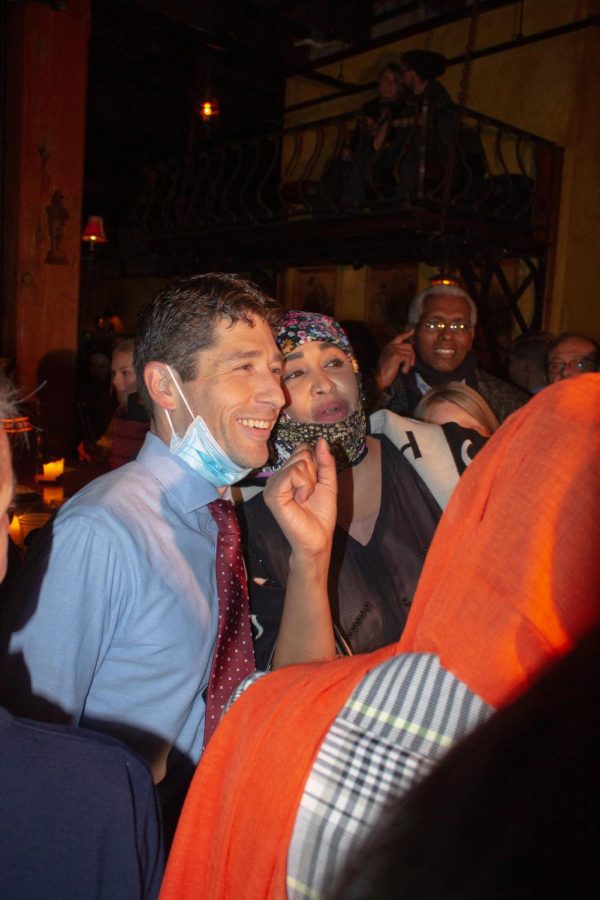Rep. Athena Hollins introduced a bill in the legislature to restrict no-knock warrants under certain circumstances; the bill was voted through its first committee on Feb. 17.
The Monday following Amir Locke’s killing by Minneapolis police officer Mark Hanneman, legislators and members of Locke’s family formally announced a legislative proposal for stricter requirements on no-knock warrants.
After Locke’s death, there has been a renewed push to restrict no-knock warrants. Locke’s cousin and aunt said at the conference they wanted this bill to be passed as a stand-alone issue to ease its passage, while recognizing there is still more to be done for criminal justice reform.
“I’m hoping that we will effectively ban no-knock warrants, except in the most extreme of circumstances,” bill author Hollins said in an interview.
The bill would not completely get rid of no-knock warrants, as it allows for no-knock warrants to be issued if there is an “articulable and imminent risk of death or great bodily harm to an individual” within a property.
Hollins said the bill was built around urgent exceptions that the United States Supreme Court found are exempt from warrants, such as active shooter situations.
No-knock warrants are a judicial and law enforcement practice that started in the 1970s and impact Black Minnesotans at a higher rate than other races. A review by MinnPost found that of the 94 no-knock warrants approved in Minnesota since September 2021, 66 were aimed at Black residents.
The bill is likely to pass the House, where the DFL retains a majority, but faces a more uncertain future in the Senate which is controlled by Republicans, Hollins said. Heavyweight former Republican party leaders and candidates for governor Paul Gazelka and Michelle Benson have both supported warrant reform efforts.
However, Chair of the Senate Judiciary and Public Safety Finance and Policy Committee, Sen. Warren Limmer, has said he will not hold a hearing on the matter.
“We do have some Republican interest in the bill in the Senate, and potentially a Republican Senate author, which would be really great for moving it forward,” Hollins said. “It’s difficult to predict how people will behave and how they will vote, but I think if we can keep the momentum going, there is that potential.”
History of no-knock warrants in the United States
Warrants in the United States are established by the Fourth Amendment, which guarantees the right “against unreasonable searches and seizures.”
University of Minnesota Professor Perry Moriearty said the government has to prove probable cause to a court to use a warrant.
“They can enter if they get a search warrant that is independently reviewed by a judge to determine whether it’s reasonable,” Moriearty said. “From that emerges something known as the knock-and-announce rule.”
During the war on drugs, a political movement that resulted in the incarceration of Black people at much higher rates than other races, there was a divergence of warrant types and the beginning of no-knock warrants. No-knock warrants were codified across the states in an effort to preserve evidence.
President Richard Nixon started the war on drugs in 1971 to combat drug usage in the United States. The programs initially focused on rehabilitation and prevention for drug users, but later turned more toward law enforcement and incarceration. After Nixon, President Ronald Reagan continued the emphasis on law enforcement — instead of rehabilitation — by raising the length of mandatory minimum sentences, among other policies.
The rationale for no-knock warrents was that the desire to preserve evidence is necessary, and announcing a police presence would allow criminals the opportunity to destroy the evidence.
Another popular reason for passing these statutes was officer safety: if officers would be entering a home for someone they believed to be dangerous — like in a murder case — announcing a police presence could allow a potentially harmful suspect the opportunity to arm themselves.
Academics are still unsure of the motive, whether race or concern of a drug epidemic, but nearly all agree the programs have had a long-lasting impact on Black Americans. Sentencing practices, like mandatory minimums, placed a larger number of Black people in prison and for longer periods of time.
In recent years, there has been a push to ban no-knock warrants, especially after the police killing of Breonna Taylor in March 2020. Police used a no-knock warrant to enter Taylor’s apartment for an investigation related to her ex-boyfriend, and an officer shot and killed her.
A year later, in April 2021: Kentucky, where Taylor lived, limited the instances where these types of warrants can be used. To date, only Oregon, Florida and Virginia have fully banned no-knock warrants.
“I do think no-knock warrants are fundamentally incompatible with the reasonable expectation of privacy that people should have in their homes,” Moriearty said.
Correction: A previous version misstated why the police used a no-knock warrant and entered Taylor’s apartment. The police used a no-knock warrant and entered Taylor’s apartment for an investigation that involved her ex-boyfriend.


















